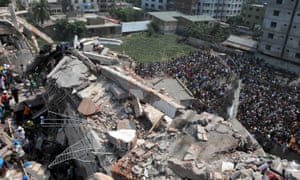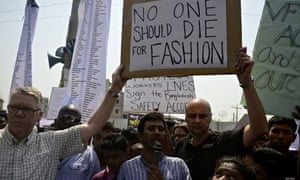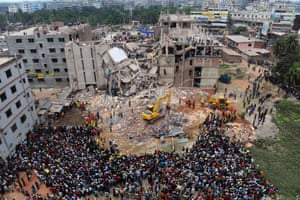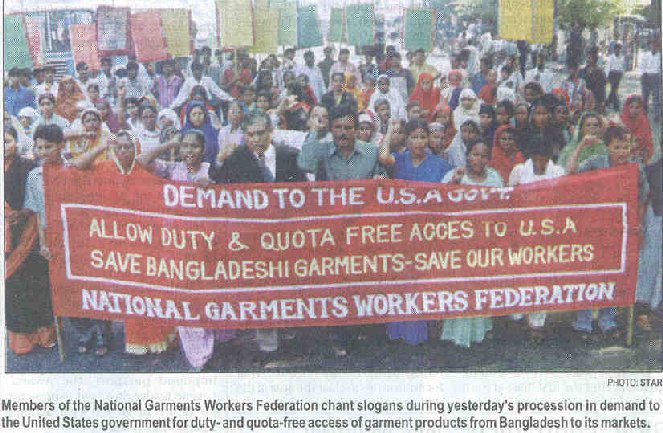পড়াশুনার সব ডিগ্রীর পূর্নাঙ্গ মানে গুলো জেনে নিন:-
Posted by : Poramorsho TV / on :Sunday, October 30, 2016
*J.S.C- Junior School Certificate.
*J.D.C- Junior Dakhil Certificate.
*S.S.C- Secondary School Certificate.
*H.S.C- Higher Secondary Certificate.
*A.M— Ante meridian.
*P.M— Post meridian.
*B. A— Bachelor of Arts.
*B.B.S - Bachelor of Business Studies.
*B.S.S- Bachelor of Social Science.
*B.B.A- Bachelor of Business Administration
*M.B.A- Masters of Business Administration.
*B.C.S- Bangladesh Civil Service.
*M.A. — Master of Arts.
*B.Sc.— Bachelor of Science.
*M.Sc.— Master of Science.
*B.Sc. Ag.— Bachelor of Science in Agriculture .
*M.Sc.Ag.— Master of Science in Agriculture.
*M.B.B.S.— Bachelor of Medicine and Bachelor of
Surgery.
*M.D.— Doctor of Medicine./ Managing director.
*M.S.— Master of Surgery.
*Ph.D./ D.Phil.— Doctor of Philosophy (Arts & Science)
*D.Litt./Lit.— Doctor of Literature/ Doctor of Letters.
*D.Sc.— Doctor of Science.
* B.C.O.M — Bachelor of Commerce.
* M.C.O.M — Master of Commerce.
*B.ed- Bachelor of education.
*Dr.— Doctor.
*Mr. — Mister.
*Mrs. — Mistress. *Miss — used before unmarried girls.
*M.P. — Member of Parliament.
*M.L.A. — Member of Legislative Assembly.
*M.L.C— Member of Legislative Council.
*P.M.— Prime Minister.
*V.P- Vice President./ Vice Principal.
*V.C- Vice Chancellor.
*D.C- District Commissioner/ Deputy Commissioner.
*S.P- Police Super.
*S.I- Sub Inspector
১. কোন মোঘল সম্রাট বাংলার নাম দেন ‘জান্নাতবাদ’ ?
Posted by : Poramorsho TV / on :Saturday, October 29, 2016
ক. বাবর
খ. হুমায়ুন
গ. আকবর
ঘ. জাহাঙ্গীর
উত্তর : খ. হুমায়ুন
NGWF Paid tributes to the memory of Rana Plaza Martyers
Posted by : Kamal Shahriar / on :Friday, July 22, 2016
On the occasion of the 32nd founding anniversary of the largest / biggest and the oldest garment workers federation, the “National Garment Workers Federation (NGWF)”, today, July 22, 2016, hundreds of garment workers, holding Bangladeshi National Flag, offered flowers at the altar of the Rana Plaza memorial plaque, at Savar, Dhaka at 10.00 am. It should be noted here that the “National Garment Workers Federation (NGWF)” was established on July 22 in 1984. The NGWF’s registration number is B-1997.
Led by President of NGWF Amirul Haque Amin, during placing flowers, those present were General Secretary of Federation Ms. safia Parvin, Central Leaders Md. Faruque Khan, Ms. Arifa Akter, Md. Kabir Hossain, Ms Nurun Nahar, Rafiqul Islam Rafique, Ms Nasima Akter, Ms Jesmin Akter, Faridul Islam, Ms Nazneen Akhter and General Secretary of Akota Garment Workers Federation Kamrul Hasan and others.
After offering of flowers, in a brief speech, NGWF President Amirul Haque Amin said, “National Garment Workers Federation is involved with full & partially achievements for the welfare of garment workers such as ‘May Day as Holiday’, ‘Weekly Holiday’, ‘Maternity Leave’, ‘Eid Bonus’, ‘ formation of Minimum Wage Board’, ‘Increase of wage’, ‘Safe Workplace’, ’Trade Union Rights’, ‘Besides Labour Law, compensation for the deceased and injured workers according to ILO Convention’. These achievements were either initiated by “National Garment Workers Federation” or through joint initiatives with other garment workers’ organizations, he added.
Amin paid rich tributes to the deceased workers of Rana Plaza & stated, “The sacrifice of life by 1138 deceased workers of Rana Plaza had the contributed to earn the rights & benefits of garment workers”.
He said, “To move forward, the garment industry workers of Bangladesh have to cope with new challenges through more solidarity & unity.”
Press Secretary, NGWF.
Captions of program photos (attached):
2. Leaders of NGWF placing floral wreath at the altar of the memorial plaque of Rana Plaza martyrs as part of 32nd founding anniversary program of the NGWF.
Bangladesh supreme court lifts ban on factory disaster film
Posted by : Kamal Shahriar / on :

Bangladesh’s supreme court has lifted a ban on the screening of a film about a garment worker who was rescued from the rubble 17 days after the Rana Plaza factory building collapsed in 2013, killing more than 1,000 people.
In response to an appeal by the producer, a four-member panel of judges led by chief justice Surendra Kumar Sinha has ruled against a high court order that banned the release of the film for six months.
Producer Shamima Akhter argued that it should be released as the country’s film censor board had approved the screening after cutting some scenes in response to court directives. The film’s director, Nazrul Islam Khan, has argued that the real-life story of Reshma Begum depicts courage amid tragedy.
Last month, the high court banned Rana Plaza after a petition was submitted alleging that the film has scenes of horror, cruelty and violence that could negatively affect workers in the country’s vital garment industry.
Lawyers said the ruling means there are no more obstacles to releasing the movie, although it is not clear when that will happen.
The April 2013 disaster killed 1,135 people, with thousands more rescued from the ruins of the illegally built complex that contained five factories supplying clothing to international companies.
Bangladesh fashion factory safety work severely behind schedule
Posted by : Kamal Shahriar / on :

Bangladesh garment workers still vulnerable a year after Rana Plaza
Posted by : Kamal Shahriar / on :

Rana Plaza collapse: 38 charged with murder over garment factory disaster.
Posted by : Kamal Shahriar / on :

A total of 41 defendants face charges over the collapse of the complex, which housed five garment factories supplying global brands. Plaza owner Sohel Rana is the principal accused.
Public prosecutor Abdul Mannan said 38 people had been charged with murder while three were charged with helping Rana to flee after the incident. Rana was arrested after a four-day manhunt, apparently trying to flee across the border to India.

If convicted, defendants could face the death penalty.
The collapse of the complex, built on swampy ground outside the capital Dhaka, sparked demands for greater safety in the world’s second-largest exporter of readymade garments and put pressure on companies buying clothing from Bangladesh to act.
Duty-free access to western markets and low wages for its workers helped turn Bangladesh’s garment exports into a $28bn-a-year industry that is the economic lifeblood of the country of 160 million people.
The minimum monthly wage for garment workers in Bangladesh is $68, compared with about $280 in mainland China, which remains the world’s biggest clothes exporter.
The Rana Plaza tragedy prompted safety checks that led to many factory closures and the loss of exports and jobs, but the industry had begun to recover strongly despite sporadic attacks in Bangladesh claimed by Islamic State and al-Qaida. These have included murders of liberals, gay people, foreigners and members of religious minorities.
But a targeted attack on a restaurant in Dhaka on 1 July that claimed the lives of 20 people including 18 foreigners, many of whom worked in the garment business, could pose a fresh threat to the industry.
Islamic State said it was responsible for one of the most brazen attacks in the south Asian nation’s history, although that claim has yet to be confirmed.
The Rana Plaza murder trial
Posted by : Kamal Shahriar / on :
NGWF এর ৩২ তম প্রতিষ্ঠা বার্ষিকীতে রানা প্লাজার বীর শহীদদের স্মরণে পুষ্পমাল্য অর্পণ।
Posted by : Kamal Shahriar / on :Thursday, July 21, 2016

23 Workers Killed,100 Injured In Stampade
Posted by : Kamal Shahriar / on :
From: Amirul Haque Amin
General Secretary
National Garments Workers Federation
9.8.01
Federation.Yesterday 24 garment workers killed in a factory fire. I am writing the news from one of our daily English Newspaper.The picture is in the attached file.
Amirul Haque Amin
General Secretary,NGWF
"FIRE AT GARMENT FACTORIES
23 Workers Killed,100 Injured In Stampade
The Bangladesh Observer
Dhaka, Thursday, August 9,2001
GARMENT WORKERS DEMAND DUTY-FREE, QUOTA-FREE ACCESS TO US MARKET
Posted by : Kamal Shahriar / on :

Greetings. Yesterday 25th October,National Garments Workers Federation have submitted a MEMORANDUM to The USA embassy in Bangladesh demanding for DUTY FREE & QUOTA FREE ACCESS OF BANGLADESHI GARMENTS PRODUCT TO THE USA MARKET.I am sending the report from one of our English Daily though it is not full.
In solidarity
Amirul Haque Amin
General Secretary
National Garments Workers Federation
THE REPORT
"GARMENT WORKERS DEMAND DUTY-FREE, QUOTA-FREE ACCESS TO US MARKET"
Express Report.
THE FINANCIAL EXPRESS
Friday,October 26 th.
First Page
300,000 garment workers become unemployed
Posted by : Kamal Shahriar / on :
Greetings from Bangladesh and National Garments Workers Federation.You know-more than 1000 garment factories are closed and near 300000 workers are now Jobless.We think-It is due to the US Economic discrimination policy for Bangladesh. Concerning this issue, we had organized a press conference day before yesterday 23.10.01.I am writing the short report from one of our English Daily.
Amirul Haque Amin
General Secretary
National Garments Workers Federation
The Report
"300,000 garment workers become unemployed"
Wesnesday 24Th October,2001
Page 3





